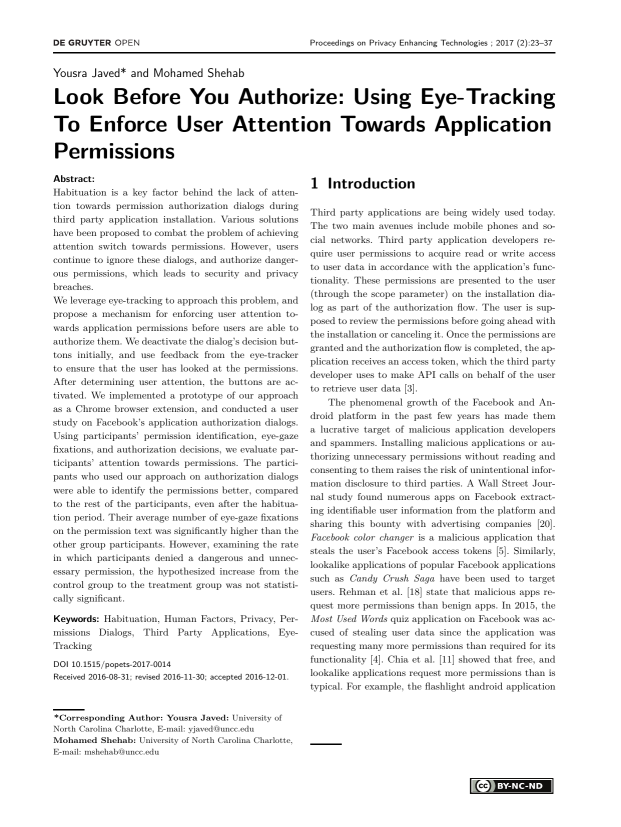Look Before You Authorize: Using Eye-Tracking To Enforce User Attention Towards Application Permissions
Authors: Yousra Javed (University of North Carolina Charlotte), Mohamed Shehab (University of North Carolina Charlotte)
Volume: 2017
Issue: 2
Pages: 23–37
DOI: https://doi.org/10.1515/popets-2017-0014
Abstract: Habituation is a key factor behind the lack of attention towards permission authorization dialogs during third party application installation. Various solutions have been proposed to combat the problem of achieving attention switch towards permissions. However, users continue to ignore these dialogs, and authorize dangerous permissions, which leads to security and privacy breaches. We leverage eye-tracking to approach this problem, and propose a mechanism for enforcing user attention towards application permissions before users are able to authorize them. We deactivate the dialog’s decision buttons initially, and use feedback from the eye-tracker to ensure that the user has looked at the permissions. After determining user attention, the buttons are activated. We implemented a prototype of our approach as a Chrome browser extension, and conducted a user study on Facebook’s application authorization dialogs. Using participants’ permission identification, eye-gaze fixations, and authorization decisions, we evaluate participants’ attention towards permissions. The participants who used our approach on authorization dialogs were able to identify the permissions better, compared to the rest of the participants, even after the habituation period. Their average number of eye-gaze fixations on the permission text was significantly higher than the other group participants. However, examining the rate in which participants denied a dangerous and unnecessary permission, the hypothesized increase from the control group to the treatment group was not statistically significant.
Keywords: Habituation, Human Factors, Privacy, Permissions Dialogs, Third Party Applications, EyeTracking
Copyright in PoPETs articles are held by their authors. This article is published under a Creative Commons Attribution-NonCommercial-NoDerivs 3.0 license.

